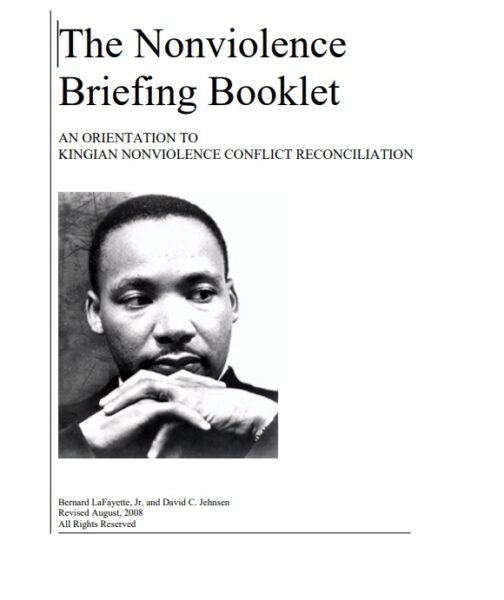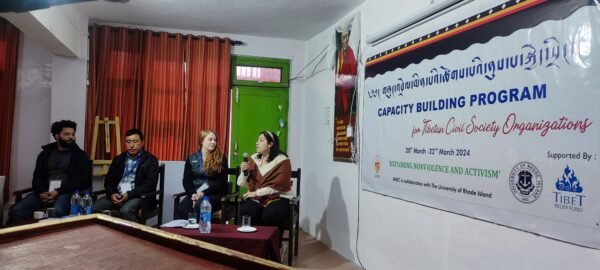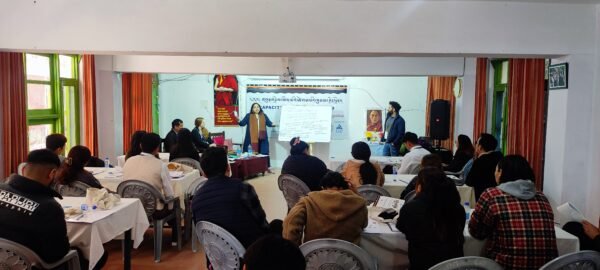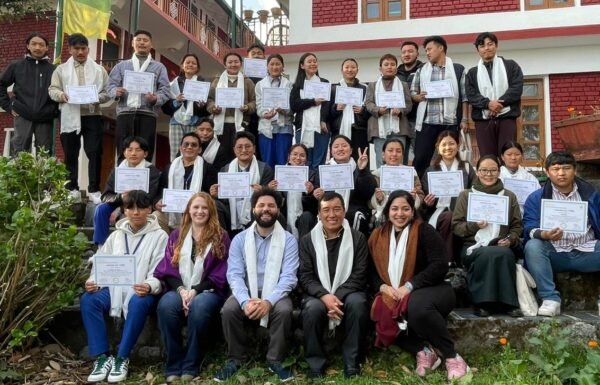Civil Society Organisation’s Capacity building program(CSO):
The “Capacity Building Program for Tibetan Civil Society Organizations,” organized by the Active Nonviolence Education Center (ANEC) from March 20th to 22nd, 2024, at the House of Peace and Dialogue, was a notable initiative aimed at strengthening the Tibetan nonviolent movement through the funding support from the Tibet Relief Fund. This workshop, held in collaboration with the University of Rhode Island, focused on Kingian nonviolence principles and tactics.
Key Highlights:
- Participants and Organisations:
The workshop saw participation from 29 individuals representing from various Tibetan Civil Society Organizations (CSOs) based in Dharamshala. The CSOs included the Central Tibetan Youth Congress, Tibetan Ability Center, Tibet Action Institute, National Democratic Party of Tibet, Students of a Free Tibet, Phayul, Tibet World, Tibetan Legal Association, Drokmo, and Tibetan Center for Conflict Resolution. Additionally, there were four school children from the Tibetan Children’s Village School and a college-going Tibetan youth.
- Trainers:
Four experts from the University of Rhode Island led the sessions:
-
- Dr. Branden Mark, Director of the Center for Peace and Nonviolence, URI. https://web.uri.edu/politicalscience/meet/brendan-mark
- Dr. Thupten Tendar, https://www.risd.edu/academics/history-philosophy-and-social-sciences/faculty/thupten-tendhar
- Dr. Meg Frost, https://web.uri.edu/politicalscience/meet/margaret-frost
- Ms. Preeti Nambiar, PhD candidate in political science in Vanderbilt University
- Training Approach:
The program adopted a participatory approach to education, positioning participants as the central source of knowledge. Various interactive methods, including group discussions, individual workbooks, skits, debates, videos, and lectures, were used to engage participants. The training was conducted bilingually in English and Tibetan, facilitated by a Tibetan-origin trainer.
- Modules Covered: The training covered a wide range of topics, including:
- Understanding violence and nonviolence
- Differentiating between intent and action in violence
- Steps to nonviolence
- Types and levels of conflicts
- Stakeholder mapping
- The spectrum of allies
- Developing nonviolent campaigns
- Countering misinformation and disinformation
- Fostering collaboration for greater impact
- Goals and Outcomes:
The program aimed to build the capacities of Tibetan civil society members engaged in the nonviolent movement. It sought to explore global nonviolent movements for inspiration and to deepen collaborative efforts within the Tibetan movement. The workshop provided a platform for networking and developing creative strategies to stabilize and advance the movement.
This year’s program emphasized the importance of learning from international nonviolent movements and encouraged participants to draw parallels and derive inspiration for their efforts. The focus on collaboration and creative problem-solving aimed to ensure the sustainability and effectiveness of the Tibetan nonviolent movement in the future.
CSO’s Training Booklet







